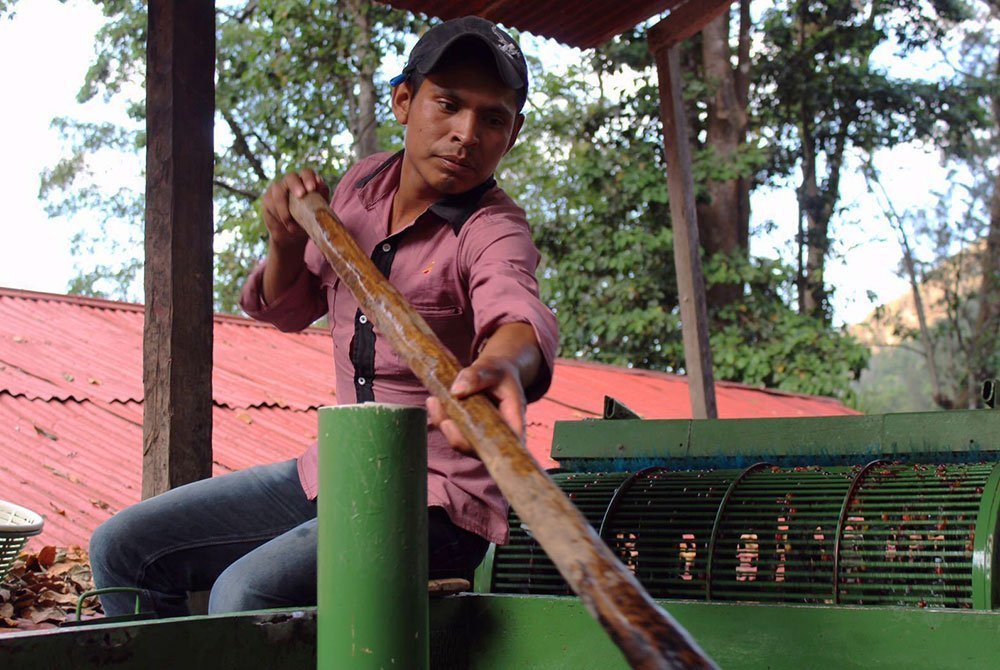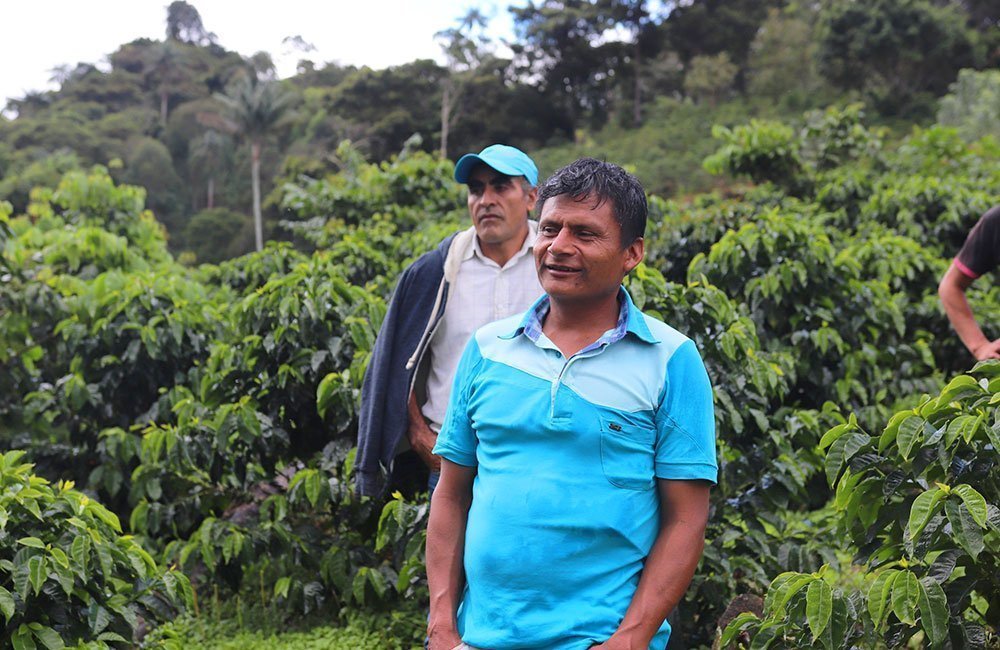Guatemala
Cherry, chocolate, apple compote
Huehuetenango |
|
1,500 – 1,700 meters above sea level. |
|
Bourbon & Caturra |
|
Washing |
|
María & Renardo Vides |

The Stock Exchange competed in the Cup of Excellence in 2002
La Bolsa Farm was purchased by Jorge Vides, a distinguished physician, in 1958. Prior to that, the land had never been used for coffee production. Jorge has won several awards for his coffee production and for his service to the Huehuetenango region, so much so that the main regional hospital bears his name.
La Bolsa competed in the Cup of Excellence in 2002 and placed second, with a score of 94.98 points. The farm is located between two mountains, which provide a very stable and humid microclimate. This, combined with the limestone-rich soil, gives the coffee a unique profile, with a silky body and abundant citric and malic acidity. The coffee is fermented for 18-24 hours, then cleaned of mucilage, channel-graded, and soaked overnight.
 Biftu Gudina's coffee is processed using the washed method. Once at the washing station, the berries are hand-sorted, and any unripe or overripe berries are discarded before being passed through the Penagos eco-pulper (this machine helps reduce excessive water use). The beans are then soaked for approximately 8 hours. The cooperative's wastewater treatment relies on a natural form of filtration through a plot of vetiver grass before passing through wells and finally into the soil. The beans are then sun-dried for 10 to 14 days on African raised beds and carefully hand-sorted again. The Bolsa is RFA -certified and follows CAFE guidelines. Coffee Care funded the construction of a school and nursery on the farm, with fully trained, full-time teachers. All staff, both temporary and permanent, have access to the school for their children, and are encouraged to leave their children at school or daycare through food donations.
Biftu Gudina's coffee is processed using the washed method. Once at the washing station, the berries are hand-sorted, and any unripe or overripe berries are discarded before being passed through the Penagos eco-pulper (this machine helps reduce excessive water use). The beans are then soaked for approximately 8 hours. The cooperative's wastewater treatment relies on a natural form of filtration through a plot of vetiver grass before passing through wells and finally into the soil. The beans are then sun-dried for 10 to 14 days on African raised beds and carefully hand-sorted again. The Bolsa is RFA -certified and follows CAFE guidelines. Coffee Care funded the construction of a school and nursery on the farm, with fully trained, full-time teachers. All staff, both temporary and permanent, have access to the school for their children, and are encouraged to leave their children at school or daycare through food donations.When a child attends school or daycare for five consecutive days, the family receives a weekly supply of rice, beans, and corn. Before this food ration system, it was very difficult to get families to leave their children in the care of others, and schooling was not valued because there was great pressure to earn more money to feed the family.
As a result, there are no children working on the farm, and the school and nursery classes are full. Housing is provided for permanent and seasonal workers, with separate facilities for men, women, and families.
 Sections of the farm are set aside to promote biodiversity, reduce wind exposure, and reduce soil erosion. Inga trees are used for shade and to fix nitrogen in the soil, which is essential for plant and fruit growth.
Sections of the farm are set aside to promote biodiversity, reduce wind exposure, and reduce soil erosion. Inga trees are used for shade and to fix nitrogen in the soil, which is essential for plant and fruit growth.Renardo has a large composting operation to make use of organic waste, using red worms .








